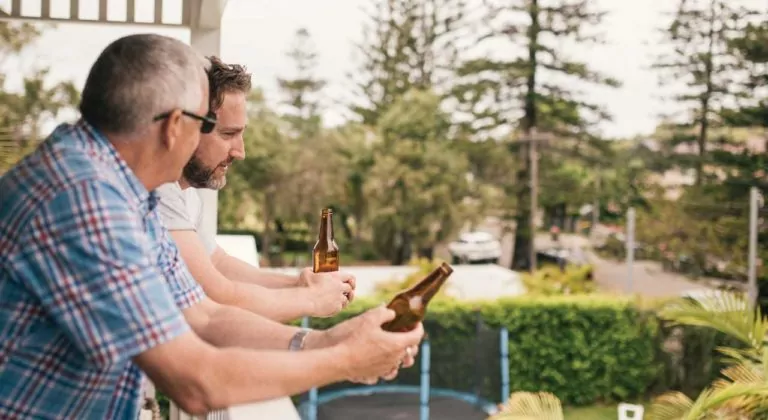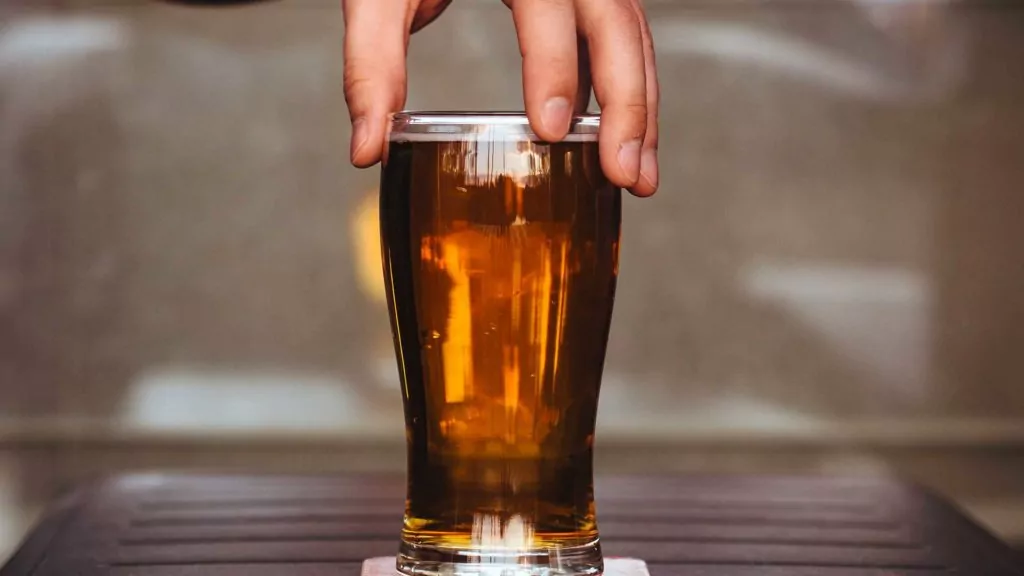Your teen is at a party with some of the “coolest” young people he knows. He’s encouraged to have a drink (“Come on, it’s only one!”)… and then another. Peer pressure doesn’t really allow for a negative response and, reluctantly, he downs the alcoholic beverages. After several, he’s not only lost count, he’s also lost his sense of reasoning and restraint. He’s a good boy, a nice boy, but what’s he going to do now that he’s drunk?
Studies done in Australia, the United States, and Canada show that many parents feel they have no control over how their son or daughter behaves in social drinking scenarios or simply do not believe their children consume alcohol. However, over 90 per cent of research supports the opposite: parents’ behavior and attitudes are indeed powerful tools when it comes to teaching a teenager the do’s and don’ts about drinking.
A father or mother, convinced that Johnny or Jackie doesn’t partake in alcohol use, may be in denial. Perhaps that’s the easiest way to deal with the issue, but it’s hardly an effective method.
Another view that occasionally shows up among parents is the attitude that alcohol abuse is part of growing up: “you are only young once.” Yes, drinking alcohol is part of life, but not the abuse of it.
What did Jesus do?
There is nothing wrong with having a drink. Alcohol was present in the Bible and Jesus Himself drank alcohol (Luke 7:33-35) and approved of its moderate consumption. Also, studies have shown that having a glass of wine each day is a healthy practice. So alcohol itself is not the problem. It’s what you do after you’ve had that drink that counts.
This is where parental support and guidance comes in. Survey after survey proves that teenagers are much better equipped to handle social drinking and peer pressure when they have been raised to respect powerful drugs such as alcohol and are introduced to it in the home environment. An introduction to alcohol in this setting delays the onset of regular usage and most often produces people who are only light drinkers.
The saying, “The grass is always greener on the other side” comes to mind: if a child has access to the occasional glass of liquor at home to be enjoyed as a family, chances are he or she won’t go looking for it elsewhere. A teenager’s developing sense of responsibility is in need of molding by the loving hand of a parent to arm them for future decisions. On the other hand, research indicates that harsh parenting or harsh discipline and high levels of conflict are connected to adolescent alcohol abuse. As in so many other settings, communication is crucial. Explain your actions to one another and talk about it with love and respect.
Parents influence peer pressure
A report, by researchers at Columbia University and Queens College and published in Adolescent and Family Health, found that young people select friends who share their attitudes about drinking. And these attitudes have been shaped by observing their parents.
Therefore, the peer group largely reinforces what young people have already learned from their parents. Parents are more influential than they may know.
Learning from Europeans?
David J. Hanson, Professor Emeritus of Sociology at the State University of New York has put together a website called Alcohol: Problems and Solutions. On this site one article explains that:
In spite of the fact that most Europeans promote responsibility and moderation by introducing alcohol to their children within the protective and supportive environment of the home, we ignore their successful example by denying children meaningful alcohol education in the false belief that young people can’t handle alcohol. Our actions lead them to drink in uncontrolled environments, such as in cars, hanging around street corners with their friends, at unsupervised parties, and similar undesirable situations. These are the worst possible environments in which to learn appropriate drinking behaviors. When our unprepared young people subsequently fail to drink appropriately, we see that as “proof” that young people shouldn’t drink. In this way, our society is creating the problems it fears.
In another article on the site he notes:
When children are served alcohol by their parents, drinking problems are generally low. When children are prevented from drinking until an older age, drinking problems tend to be high. The evidence is overwhelming.
Another pertinent piece reads:
Instead of stigmatizing alcohol and trying to scare children into abstaining, we need to recognize that it is not alcohol itself but rather the misuse of alcohol that is the problem.
Hanson adds: “We need to prepare our children to live in a largely drinking world.”
Resisting peer pressure
Saying “no” under pressure isn’t easy, but it becomes easier with time and practice and is a true character builder. We can teach our children to practice refusing drinks politely. They can turn it into a joke and say something clever like “No thanks, I’m performing neurosurgery in the morning” or “It sloshes too much when I jog,” or an honest and simple “no thank you.” They’ll be happy you prepared them; if not right away, then certainly in the future.
As Thomas Jefferson once said: “In matters of style, swim with the current. In matters of principle, stand like a rock.” Drinking responsibly is a sign of maturity and good judgment.
The medical case
It may also be worth telling your children about some of the detrimental effects caused by overuse of alcohol. It affects the brain, especially if in a growing child; it is a leading cause of many kinds of cancer, and can lead to psychological issues, not to mention injury, assault, and road accidents. Investigations published by the American Medical Association shares the following:
- Adolescent drinkers scored worse than non-users on vocabulary, general information, memory, memory retrieval and at least three other tests.
- Verbal and nonverbal information recall was most heavily affected, with a 10 per cent performance decrease in alcohol users.
- Significant neuropsychological deficits exist in early to middle adolescents with histories of extensive alcohol use.
- Adolescent drinkers perform worse in school, are more likely to fall behind and have an increased risk of social problems, depression, suicidal thoughts and violence.
- Alcohol affects the sleep cycle, resulting in impaired learning and memory as well as disrupted release of hormones necessary for growth and maturation
- Alcohol use increases risk of stroke among young drinkers
Humanly speaking, reason enough to know your limits.
Don’t be naive
Doing research on this topic, I came across the website of Christianity Today, where I read the following:
Statistics show that many Christian kids experiment with alcohol in much the same way as their non-Christian peers….Libby, a mother of preteens who was raised in a churchgoing home, recalls drinking heavily when she was in high school and college. “I’m not really sure why I did. All of the kids were doing it, even the church group,” she remembers. “My parents never said anything; I don’t think they realized I was drinking.” Libby says her parents didn’t discuss alcohol with her. “I wish they had. I would at least have had a value or a moral context. I look back and feel such remorse about the danger I put myself and others in by driving and drinking.”
Alcohol abuse is indeed present in Christian circles. We cannot turn a blind eye to it. The Bible frequently mentions how God hates drunkenness and its effects (i.e. 1 Cor. 6:10). It gives us a clear picture that abuse was present then too. In Nelson’s Where To Find It In The Bible, the topic pertaining to alcohol has over 30 referrals such as “Noah’s drunkenness,” “Festive Wine,” and “False joy.” God has given us alcohol to use, not to abuse.
Being blessed with children in a Christian setting is no guarantee for a positive outcome: we are human and make mistakes, and so will our children. However, our struggle to live as Christians should set us apart from those who have turned their backs on faith. Let’s encourage one another to limit our alcohol intake. The future is so much brighter being sober!
This article first appeared in the June 2016 issue under the title “Alcohol and your kids.”








